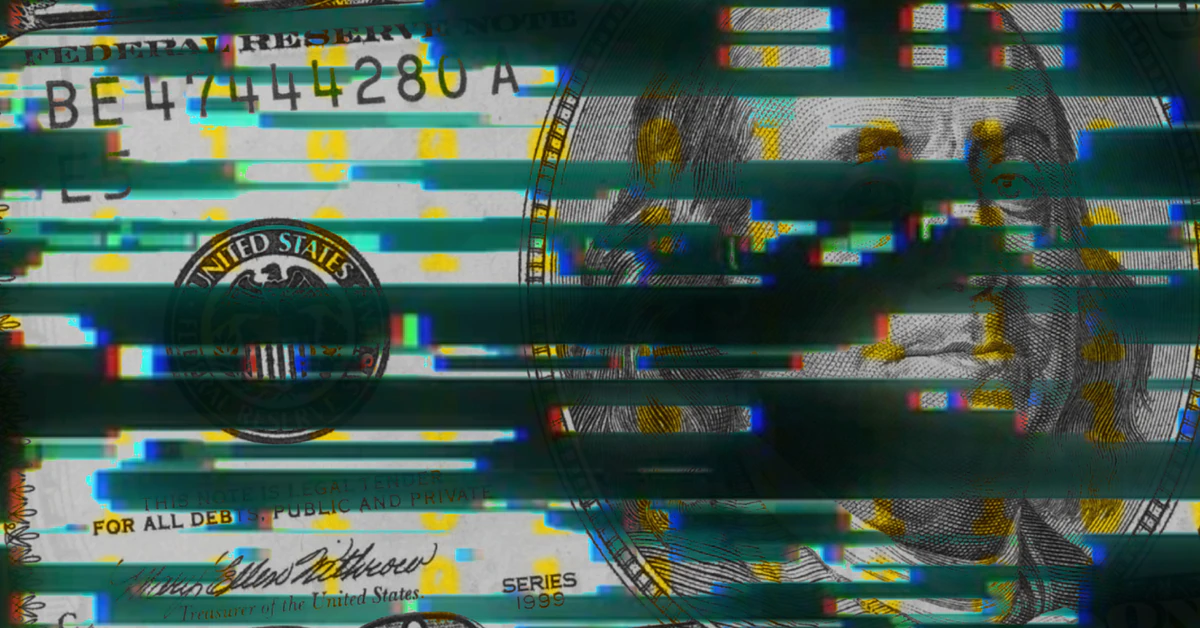Some predictions about the future of money are cautious, sensible, sober and grounded. These are not. To open our minds as to what the future might
Some predictions about the future of money are cautious, sensible, sober and grounded. These are not. To open our minds as to what the future might bring, we chucked the usual concepts like “most likely” or “bet on this.” Instead we wondered, what are some dark horse scenarios that maybe, just maybe, could revolutionize the way we think about money?
Here the focus is more on fun than functional, more possible than probable. Then again, we now live in a world where cartoon apes sell for $2.6 million, memes about dogs are worth billions, and a sovereign nation accepts bitcoin as legal tender.
Anything is in play.
This article is part of Future of Money Week, a series exploring the varied (and sometimes weird) ways value will move in the future.
1. Risk becomes tokenized
What if we could tokenize risk? If we do this in a clever way, we could reduce the overall risk in the system and avoid meltdowns like the financial crisis of 2008, says Ashleigh Schap, a decentralized finance (DeFi) investor and adviser at Uniswap, a decentralized trading platform.
Here’s how to think about it. Imagine if you, as an individual, have tokens that represent each of your risks and liabilities. A token for your car loan. A token for your home mortgage. A token for your leveraged margin trading account. If you roll up all of your individual risk tokens, that would give you a sense of your total risk.
Now zoom out the lens. Imagine aggregating all of the risk tokens by each person in the community, and then an entire industry, or even the entire economy. Because these tokens are all smart contracts – programmable money – this would let you “build risk into the system in a more fundamental way,” says Schap.
She contrasts this to the constraints of traditional finance, most famously in the collapse of 2008, where each company had its own siloed view of risk but they lacked a holistic picture of the overall risk to the system. By tokenizing risk? You can snap all the puzzle pieces together, and “smart contracts can basically assess the entire picture.”
Read more: The Future of Money: 20 Predictions
2. Cars spend money and buy their own insurance
Way back in February of this year, Elizabeth Stark, head of Lightning Labs, gave me this prediction: “Machines will pay machines, natively, instantly … Teslas will pay for charging with Lightning!”
That’s just one example. The possibilities are endless. “Imagine a machine at a factory, if it runs out of ink, it can order more,” says Schap. She then gives a spicier scenario. “Maybe you have a car or a truck that’s able to buy its own insurance,” she says. Perhaps the car has the ability to assess risk and make smart decisions. “If it’s raining, it buys a little more insurance,” says Schap.
She notes that in our current world, whenever you buy car insurance, “you’re paying for the insurance every day, even when you’re not driving the car.” You have a busy life. You don’t have time to deal with insurance companies every month, much less every day. But imagine if the car could constantly survey the risks – weather, traffic conditions, even neighborhood – and make constant tweaks to your insurance? (Just before it becomes fully sentient and dominates the world.)
3. You will pay for things without thinking about it at all
This could be here sooner than you think. A couple of weeks ago, I went to a Denver Broncos football game. The stadium had a beer stand that looks teleported from the future: First you scan your credit card, then you go through a turnstile to enter a room full of coolers. You take whatever beer you want, then you leave. No scanning of UPC codes. No interacting with any humans. As the attendant explained to me, an elaborate network of cameras and GPS micro-sensors ensures that you are charged for the correct number of beers.
Tarun Chitra, CEO and co-founder of Gauntlet and General Partner at Robot Ventures, imagines a shopping experience like this in the future but without credit cards, wallets or even phones. It will be driven by cryptocurrency and stablecoins – not a centralized player like Amazon – and somehow it protects privacy. “You go pick up your items and walk out,” says Chitra. You have an agreement with the grocery store, for example, where “you can automatically charge me if it’s less than $100.”
Read more: The Future of Money: A History – Dan Jeffries
4. The price of your dinner will be in sats
The idea of “buying a coffee with bitcoin” is now something of a punchline, at least in developed economies like the United States. But it will happen eventually, says Cory Klippsten, founder of Swan Bitcoin (and author of an op-ed for this “Future of Money” series). “The medium of exchange for bitcoin will not take off,” says Klippsten, “until a lot of people hold the majority of their net worth in bitcoin.” His logic? It makes no sense to spend your bitcoin “unless you have nothing else to spend.”…
www.coindesk.com
